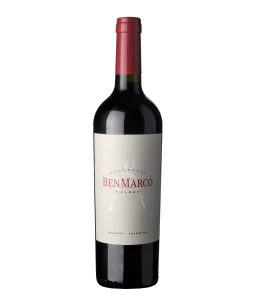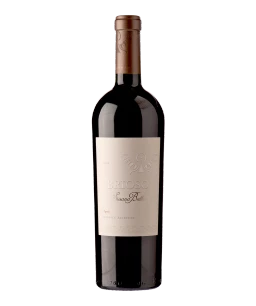Susana Balbo Wines
The mighty Aconcagua watches over the plain of Mendoza, 1000 kilometres from Argentina’s capital Buenos Aires. A barren, semi-arid land where Jesuits and Franciscans, after the Spanish conquest in the 16th century, discovered favourable natural conditions for viticulture.
At 1000 to 3000 meters above sea level lies this oldest and most important wine region of the country. The village of Agrelo, near Luján de Cuyo, is home to the bodega founded by Susana Balbo in 1999. She is a woman with an impressive career. In 1981, she became the first woman in Argentina to successfully complete her degree in œnology. In 2015, Drinks Business magazine named her “Woman of the Year”. In 2018, she was recognised as one of the ten most influential women in the international wine trade. She also presided over the national marketing organisation Wines of Argentina for several years.
White wines from Susana Balbo Wines
Red wines from Susana Balbo Wines
from Susana Balbo Wines
She gained her first professional experience at a young age in Cafayate, in the northern province of Salta, where she experimented with the white grape Torrontés. Her expertise later earned her the moniker “Queen of Torrontés”. This was followed by further leading positions in large and well-known wineries at home and abroad. In 1999, she realised her personal dream by founding her own bodega, where she is now free to create wines according to her own vision. When her children Ana and José decided to take on responsibility in her life’s work, it was another dream come true for Susana Balbo.
300 days of sunshine, but only 200 millimetres of rain a year mean two things in this wine region: on the one hand, most pests and vine diseases don’t stand a chance in the hot, dry climate. As a result, it is possible to work in close balance with nature, without the use of chemical pesticides. On the other hand, irrigation has to be targeted and controlled by means of a drip irrigation system in order not to waste precious water.
Malbec and Torrontés are the Argentinian grape varieties par excellence. Over the last century, the Cot grape variety basically relocated from Cahors in southwestern France to Argentina where it became known by the name Malbec. The wines delight connoisseurs with their deep colour and intense fruit reminiscent of Amarena cherries. The white wines from Torrontés are very aromatic and flowery. It is to Susana Balbo’s credit that Torrontés is now considered a quality variety and, like Malbec, has become a flagship for Argentine wine. Cabernet Sauvignon, Merlot, Pinot Noir, Syrah, Sauvignon Blanc and Chardonnay are also cultivated here. Mechanisation at the vineyard is kept to a bare minimum and all grapes are carefully harvested by hand.
Sustainable and natural cultivation of the vineyards, quality assurance according to international standards (ISO 22,000), responsible management with social competence (support and help for employees and their families) and a number of eco-friendly measures (CO2 emissions, energy optimisation, waste disposal, recycling) are important responsibilities that Susana Balbo and her children take on with their company – by no means something to be taken for granted in Latin America.
Three product lines appeal to different sensations:
- The Crios wines are fresh, youthful and straightforward – a perfect everyday delight.
- The Benmarco wines are produced from selected, mostly high-altitude vineyards with pronounced characteristics.
- The wines bearing Susana Balbo’s name are elegant signature wines that impressively demonstrate the œnologist’s unique talent for blending different provenances.
The Nosotros wine – meaning “we” in Spanish – is an expression of the dedication and experience of the whole team. It is the flagship of the bodega, comes from a single vineyard and regularly receives rave reviews. It is certainly one of the best wines in Argentina (James Suckling awarded the 2013 vintage 99 points and placed it in his Top 100).

Producer
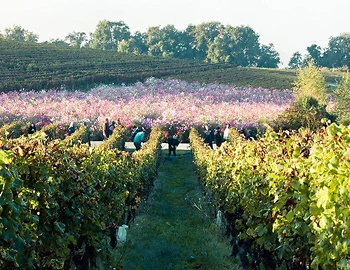
Château Biac
Sometimes life is full of surprises. The Lebanese Asseily family experienced this first-hand when they became the owners of Château Biac as if by accident in 2006. They regularly spent their summer holidays near Biac, but never would they have dreamt that they would own and manage this wonderful property themselves one day. It’s a fascinating story that Tony and Youmna Asseily are happy to share over a glass of their wine.
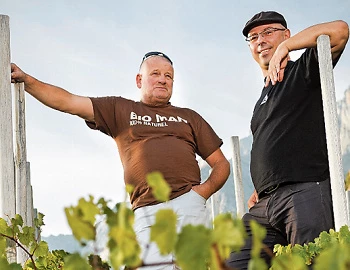
Didier Joris
Didier Joris is a legendary figure in the Valais, where the history of wine would be unthinkable without him. He grew up in a farming family that initially concentrated on raising cattle. To this very day, Didier still raves about «his Queens», the Hérens fighting cows. It was only during the 1960s and 1970s that the Joris family began to terrace slopes to plant vines and cultivate vineyards.
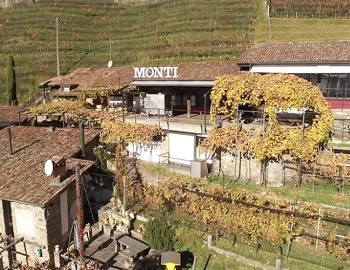
Cantina Monti
Located at 550 meters above sea level, with extreme slopes, the Cantina Monti covers 4.7 hectares. The sloping soil does not allow mechanization in the vines, which includes nine different grape varieties. Every season, the Monti family immediately focuses on the production of superior quality wines, a quality also given by the very low yield in the vineyard.





